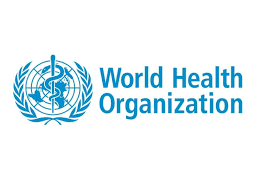World Health Organisation (WHO) says the shortage of at least one billion syringes “could occur” if manufacturing does not pick up based on global demand for syringes.
WHO said that based on a scenario where around seven billion people would need two doses of Coronavirus vaccine between now and 2023, a shortage of at least one billion syringes could occur.
According to the agency, efforts to boost COVID-19 vaccine production should be matched by access to the syringes needed to inject them.
It added that there could even be a global shortage of needles for regular immunisation campaigns by 2022.
Lisa Hedman, WHO Senior Advisor, from the Access to Medicines and Health Products division, warned that a generation of children might miss scheduled immunisation jabs unless manufacturers found a way to make more single-use disposable syringes.
“When you think about the magnitude of the number of injections being given to respond to the pandemic, this is not a place where we can afford shortcuts, shortages, or anything short of full safety for patients and healthcare staff,” the WHO expert said.
She told newsmen in Geneva on Tuesday that more than 6.8 billion doses of COVID-19 vaccines were being administered globally per year, which was nearly double the number of routine inoculations delivered annually:
“A shortage of syringes is, unfortunately, a real possibility, and here are some more numbers.
“That the global manufacturing capacity of around six billion a year for immunization syringes, it’s pretty clear that a deficit in 2022 of over a billion could happen if we continue with business as usual.”
Hedman explained that reusing syringes even after they were sterilised was not advised, as harmful bacteria remained present.
She also noted that syringes were particularly prone to transport delays because they took up 10 times the space of a vaccine.
Meanwhile, the heads of the International Monetary Fund (IMF), World Bank Group, WHO, and the World Trade Organisation (WTO) held a follow-up session of High-Level Consultations with the CEOs of leading COVID-19 vaccine manufacturing companies on Tuesday.
At the meeting, according to a news release, all participants agree on the urgency of delivering more vaccine doses to low-income countries, where less than 2.5 percent of the population has been fully vaccinated.
The objective of the meeting was to identify how to ensure a more equitable distribution of vaccines and all those participating pledged to continue working together to gain greater clarity on donations, vaccine swaps, and delivery schedules.
The meeting was to ensure that the distribution of the life-saving vaccines could be more effectively targeted towards those countries most in need.
The meeting of the Multilateral Leaders Task Force on COVID-19 built on technical work undertaken by multidisciplinary teams during the months of September and October.

